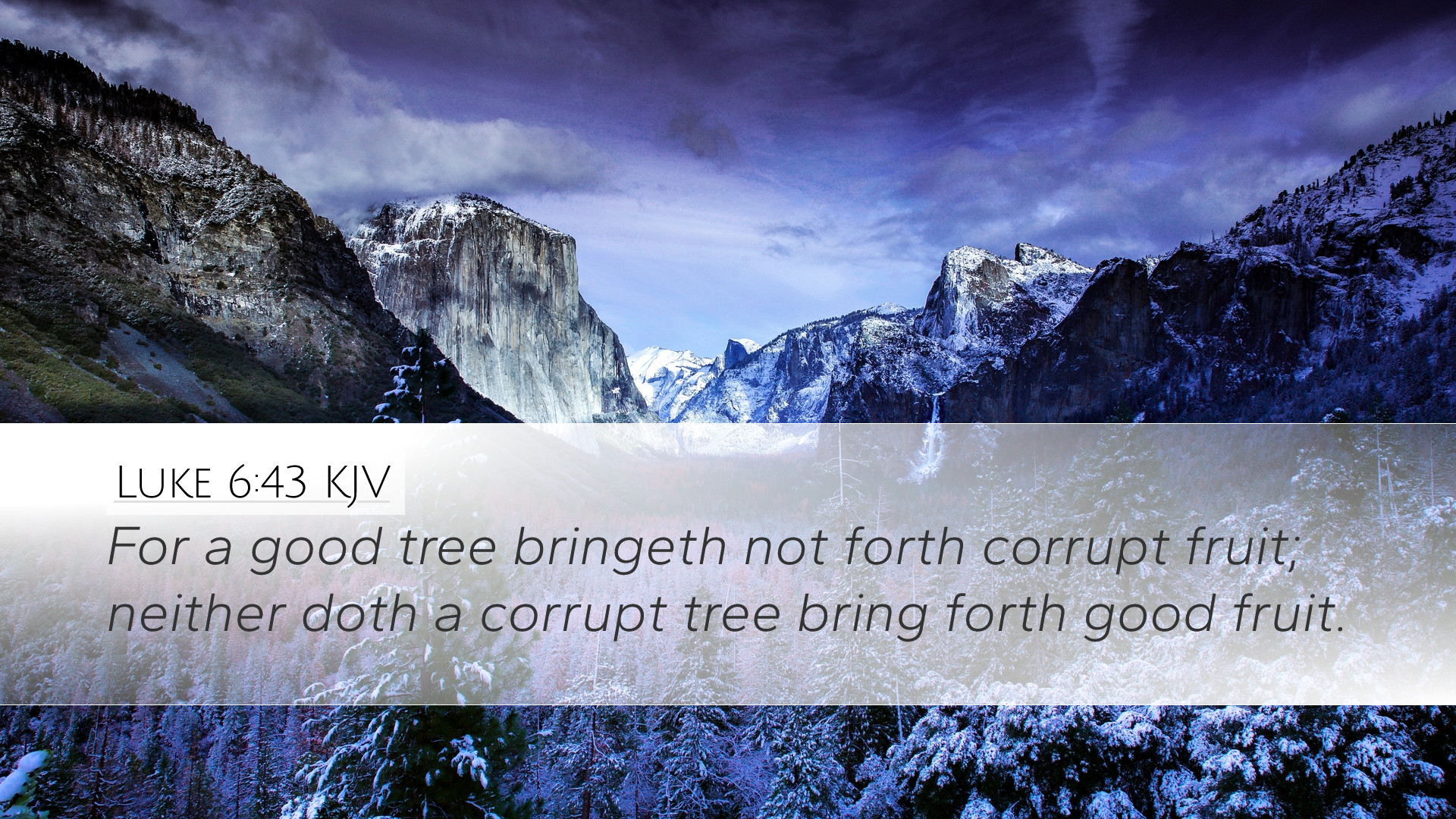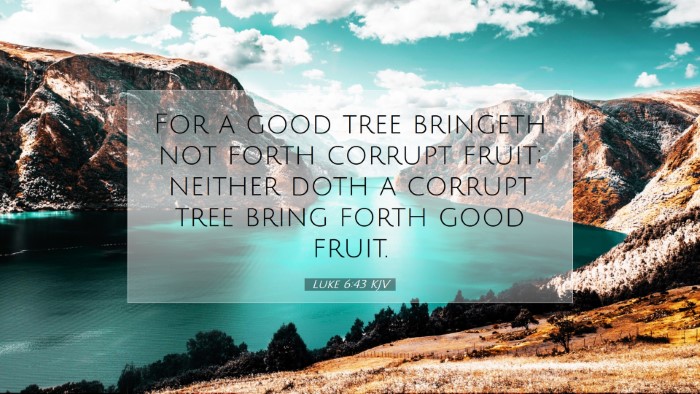Commentary on Luke 6:43
In Luke 6:43, we encounter a profound principle regarding the nature of a person’s character and the manifestation of one’s true self through their actions and words. The verse states, "For a good tree bringeth not forth corrupt fruit; neither doth a corrupt tree bring forth good fruit." This text serves as a metaphor that resonates deeply within the Christian faith, emphasizing the intrinsic connection between the essence of a person and the fruits they produce.
Exegesis of the Verse
The imagery of trees and their fruits is a rich theme in biblical literature. Trees are often used to symbolize individuals or communities, with the fruit representing their deeds, thoughts, and character. This analogy is prevalent throughout scripture, demonstrating an important truth about integrity and authenticity in the life of a believer.
Theological Insights
-
Matthew Henry notes that this verse underlines the principle that a person's actions reveal their inner nature. He emphasizes the implication that good actions can only stem from a good heart, making it clear that one’s true character will inevitably manifest itself, irrespective of appearances.
-
In his observations, Albert Barnes underscores the importance of moral and spiritual quality. He remarks that the distinction between good and corrupt fruit highlights the binary nature of moral existence, where good is inherently linked to a divine source, while corruption arises from a departure from God’s principles.
-
Adam Clarke adds depth by discussing the implications of this metaphor in daily Christian living. He suggests that believers must evaluate their own lives, assessing whether their actions reflect the goodness of God or the corruption stemming from sin. This reflection is essential for spiritual growth and authenticity in faith.
Application for Pastors and Theologians
This verse provides a critical framework for understanding the ethics of pastoral leadership. As leaders, one’s inner spiritual health directly influences the congregation’s vitality. If leaders embody the goodness that comes from a relationship with Christ, they will naturally foster an environment where good fruit—such as love, kindness, and obedience—is cultivated within their churches.
Pastoral care is also illuminated through this passage. It serves as a reminder that regular self-examination is necessary for spiritual leaders, who must be aware that their personal weaknesses can detract from their ability to lead effectively. As Henry suggests, “We must also take heed what we do, for what we do is a true representation of our character.”
Reflection for Students and Biblical Scholars
For students and scholars, this verse invites rigorous contemplation on the broader social and societal implications of morality. The teachings within Luke 6:43 are transformative when studied alongside the prophetic literature, which frequently emphasizes the necessity for alignment between one’s inner life and outward actions. The examination of this principle across various texts enhances understanding of God’s expectations for human behavior.
Furthermore, scholarly contexts can benefit from a deeper exploration of the cultural backdrop in which Jesus spoke these words. The agrarian economy of the time makes the metaphor accessible but also laden with connotations of authenticity, a concept that held considerable significance in first-century Judea.
Conclusion
In summation, Luke 6:43 stands as a poignant reminder of the connection between one’s essence and actions. The good tree produces good fruit, mirroring the life of a believer who is rooted in Christ. For pastors, theologians, and scholars alike, the verse challenges us to reflect on the source of our fruit - whether it springs from our relationship with God or from the corruption of sin.
Through proper understanding and application of this teaching, one can inspire a community that not only professes faith but also demonstrates it through tangible good works. As we contemplate these truths, may we strive to be good trees, deeply rooted in Christ, consistently producing fruit that glorifies God.


